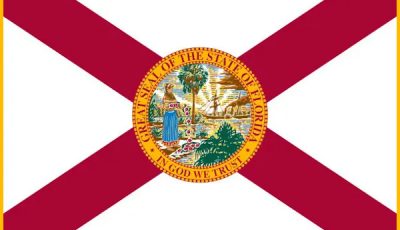Porn: Ubiquitous, Addictive … But Also ‘Dying Out’
 MIDLAND, Mich. – For some reason, almost every article that references Joseph P. Overton, the fellow who came up with an appropriately-named political science theory called the Overton Window, starts by acknowledging the reader has likely never heard of him.
MIDLAND, Mich. – For some reason, almost every article that references Joseph P. Overton, the fellow who came up with an appropriately-named political science theory called the Overton Window, starts by acknowledging the reader has likely never heard of him.
I’m not going to do this, because in addition to realizing you probably don’t know who Overton was, I also figure you don’t care who he was. Nor should you care, really, because the Overton Window is neither particularly original nor brilliant. At its core, Overton’s principle is no more than the observation that politicians tend to support only those policies which will help them get elected or reelected.
Call me overly critical if you wish, but this doesn’t seem like any sort of earth-shattering revelation to me. If anything, it sounds like something we all know, intuitively, about the sort of smarmy motherfuckers who tend to run for public office. Unless they’re qualified to get a job at ESPN analyzing the NFL Draft, holding elected office is the only way they’re going to get paid to speak constantly without actually saying anything of value.
In fact, if you ever darkened the door of a political science class prior to Overton coining the term in the early 1990s, I guarantee you heard pretty much the same shit from your professor at some point. In all likelihood, the only real difference was your poly-sci professor never thought to name the rather obvious notion after himself.
At any rate, based on his understanding of the Overton Window, Dan Armstrong, a “corporate communications specialist” with internet-content-filtration and “accountability” software development firm Covenant Eyes, said he thinks porn may be on the way out.
“There’s a growing movement of millennials who have consumed pornography throughout their childhood and now want nothing to do with it,” according to Armstrong. “Some technology companies also specialize in helping people break free from porn.”
Gee, Dan, to which technology companies are you referring? Not that you are trying to work in a sideways plug of your company’s flagship software or anything. It’s just a salient point about porn and the big groundswell of millennials who are against it, right? (Riiiight.)
While I don’t doubt there’s a “growing movement” of millennials who are against porn, the main reason I believe this to be true is these days there’s a growing movement of millennials who are against just about everything, from Wall Street and Monsanto to the lack of “safe spaces” on college campuses — you know, like places where students and allied faculty can invite the media in to cover their protest, but only if the media does so entirely on the students’ terms.
At the same time, Armstrong also cited survey data (this survey data, which is the only porn survey data that matters if you’re part of the Christian Right) indicating “teens and young adults are mostly indifferent toward pornography.”
So, teens and young adults both want nothing to do with porn and are indifferent to it at the same time? How does that work, exactly?
How many of these young people who allegedly want nothing to do with porn are part of the 89 percent of teens and 95 percent of young adults in the same Barna survey who say that when they talk about porn, “they do so in a neutral, accepting, or encouraging way,” according to the researchers? Are they also a subset of 56 percent who said not recycling is more immoral than watching porn?
To Armstrong, the “bold step” Utah’s legislature took in declaring porn to be a public health crisis is another indicator the Overton Window is now open for those who would like to regulate porn out of existence. As Armstrong himself noted, however, “the measure doesn’t ban porn, nor does it appropriate any money. It’s more of a statement that a majority of Utah lawmakers considers porn to be bad for society.”
A nonbinding resolution which affects no change in law, policy or funding whatsoever? Yes, that’s clearly a very bold step, indeed.
Plus, we all know what massive balls it takes to be against porn as a politician, historically speaking. That’s why you never heard about politicians being anti-porn back in the 1990s, when then-President Clinton signed both the Child Online Protection Act and the Communications Decency Act, or in the ’80s, when the Meese Commission did its thing, or the ’70s, during the early part of which mere distribution of porn often resulted in a felony charge.
Yes, the times have changed. Finally, it’s safe to be a politician against porn, because the Overton Window is open — kinda-sorta, at least symbolically and within the borders of Utah.
So, just to recap Armstrong’s thinking: Porn is on the way out, because everybody is watching it in truly alarming numbers and becoming hopelessly addicted to it, and young people think watching porn is less immoral than failing to recycle, but they are also somehow indifferent to it, and it’s something with which they increasingly want nothing to do, even as they speak about porn in encouraging ways, and a legislature in one of the country’s most conservative states took the oh-so-bold step of passing a resolution with no real legal or policy-related impact whatsoever.
Yup, this sure sounds like the makings of an adult entertainment market catastrophe to me.
I sure hope this Overton Window is on the second floor or lower, because I’m thinking of jumping out that sucker right now, before Utah does something really bold — like pass a concurrent resolution declaring Larry Flynt an “unrepentant meanie on wheels.”














